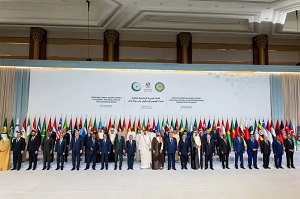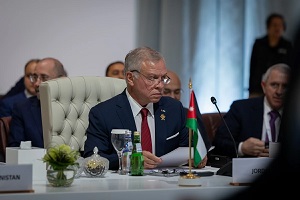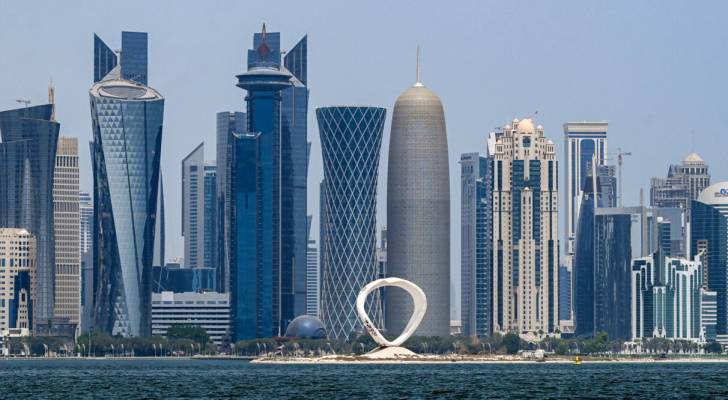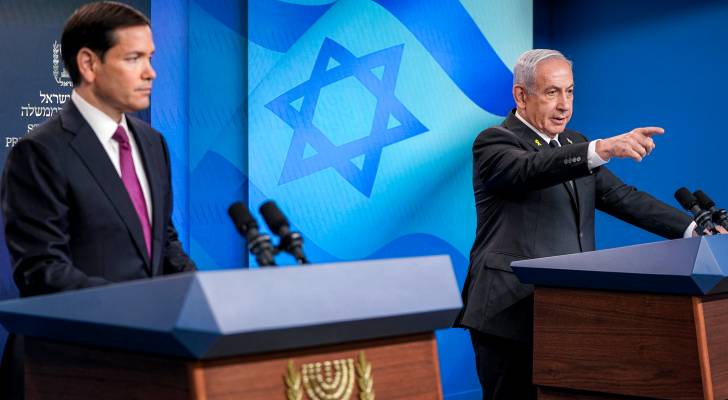EMV session showcases Kingdom’s mineral wealth potential, investment reforms
The Jordan Times
AMMAN — Ministers, industry experts, and private sector representatives convened on Saturday under the Economic Modernisation Vision (EMV) to review progress in Jordan’s mining sector and preparations for the launch of its second executive programme
The session, held at the Prime Ministry, highlighted the Kingdom’s ambitions to expand mineral wealth, attract international investment, and strengthen its role as a driver of growth, exports, and employment by 2033.
Minister of Energy and Mineral Resources Saleh Kharabsheh emphasised Jordan’s stable investment environment, underpinned by political stability, monetary security, and a fixed exchange rate, which enable long-term planning and reinforce investor confidence.
He also highlighted the Kingdom’s diverse mineral portfolio, including phosphates and potash, internationally strategic resources in which Jordan has decades of operational expertise.
"Ranking seventh worldwide in phosphate reserves, the country also has significant production capacity in both phosphates and potash. Promising prospects for copper, gold, and rare earth minerals further support diversification and future growth," he added.
Jordan’s strategic location provides direct access to regional and international markets through ports, highways, and transport networks. Combined with a skilled, cost-competitive workforce and extensive knowledge in phosphate and potash production, these advantages create opportunities for downstream industries and higher-value activities.
Despite these strengths, the EMV identified structural barriers that limit competitiveness. "High energy and water costs, an underdeveloped legislative framework, outdated geological data, and logistical constraints, including distance from mining sites to the Port of Aqaba, limited railway connectivity, and export facility capacity, pose ongoing challenges. The current fiscal regime, with high fees, also discourages exploration.
To address these issues, the EMV outlines seven strategic goals: boosting mining’s contribution to national economic growth, accelerating exploration and resource diversification, developing competitive downstream industries, positioning Jordan as an international investment hub, embedding sustainability and responsible mining practices, building institutional capacity with smart mining technologies, and enhancing competitiveness through improved infrastructure and a business-friendly environment.
The mining sector has made significant strides. According to EMV document, it currently employs over 9,000 workers, representing 0.6 per cent of the national workforce, with projections to rise to 27,500 by 2033, reflecting a more than 200 per cent increase. Its contribution to GDP stands at JD910 million (2.7 per cent), expected to more than double to JD2.1 billion within the next decade. Mining exports, currently valued at around JD 1 billion, are targeted to reach JD3.4 billion by 2033, achieving an average annual growth rate of 14.4 per cent.
Minister Kharabsheh noted that progress in the first phase of EMV projects has reached 41 per cent, with seven of 17 projects completed and 10 under implementation. The second phase will introduce 15 new projects, covering phosphate, potash, bromine, lithium, rare earth elements, copper, gold, basalt, and silica.
To support these targets, the government is implementing a series of legislative and institutional reforms. A new Natural Resources Law will streamline procedures, clarify investor rights, and guarantee tenure security. Fiscal incentives, including reduced land rental fees during exploration and fair royalty formulas, aim to encourage production and investment.
A National Geological Data Bank would provide up-to-date, digitised information, while a one-stop investment window would consolidate permits and approvals to reduce bureaucracy and accelerate project timelines.
The EMV also proposes establishing a National Geological Survey Authority as the sector’s scientific and technical reference point. Complementary initiatives include enhancing phosphate and potash competitiveness, developing value-added downstream industries, diversifying exports, and training workers in smart and digital mining. Environmental, social, and governance (ESG) standards would be integrated to align the sector with global norms and strengthen investor confidence.
Attendants stressed that with the right policies, reforms, and investments, the mining sector can become a cornerstone of Jordan’s economic diversification strategy.
Latest News
-
 Arab-Islamic Summit issues final statement, condemns Israeli attack on Qatar, calls for accountability
Arab-Islamic Summit issues final statement, condemns Israeli attack on Qatar, calls for accountability
-
 King delivers Jordan's address at Emergency Arab-Islamic Summit in Doha
King delivers Jordan's address at Emergency Arab-Islamic Summit in Doha
-
 Leaders unite against ‘Israeli’ strike on Qatar at emergency Arab-Islamic Summit
Leaders unite against ‘Israeli’ strike on Qatar at emergency Arab-Islamic Summit
-
 Gaza’s death toll rises to 64,905: Health Ministry
Gaza’s death toll rises to 64,905: Health Ministry
-
 Rubio promises Netanyahu “unwavering support” to ‘Israel’ in Gaza goals
Rubio promises Netanyahu “unwavering support” to ‘Israel’ in Gaza goals